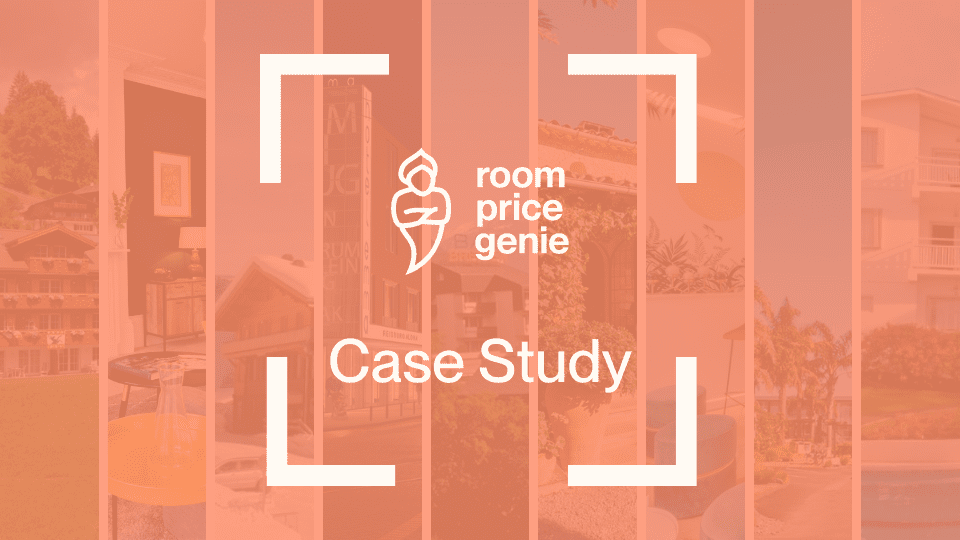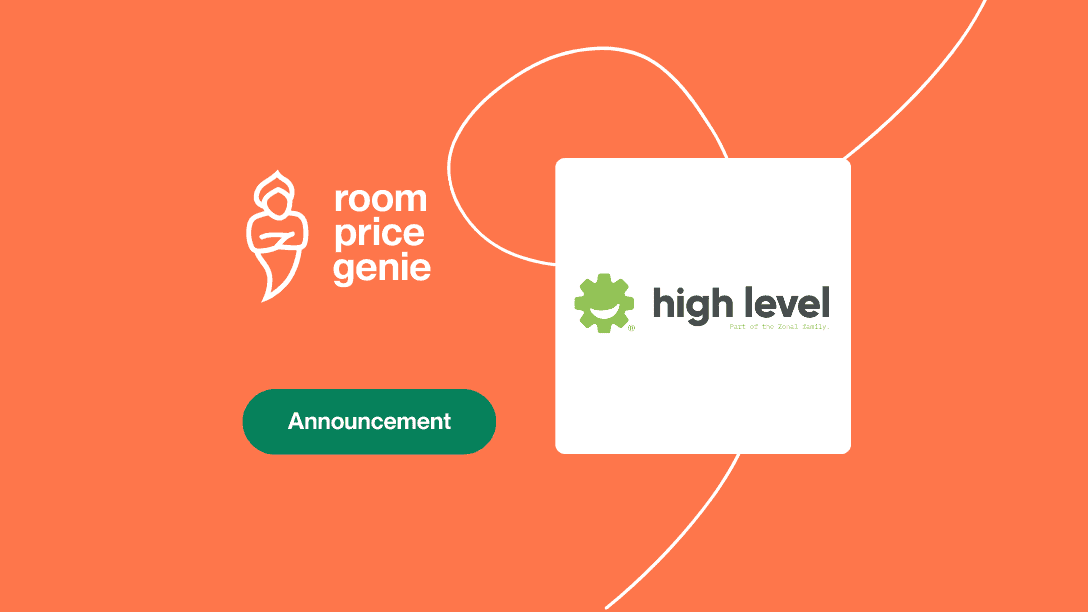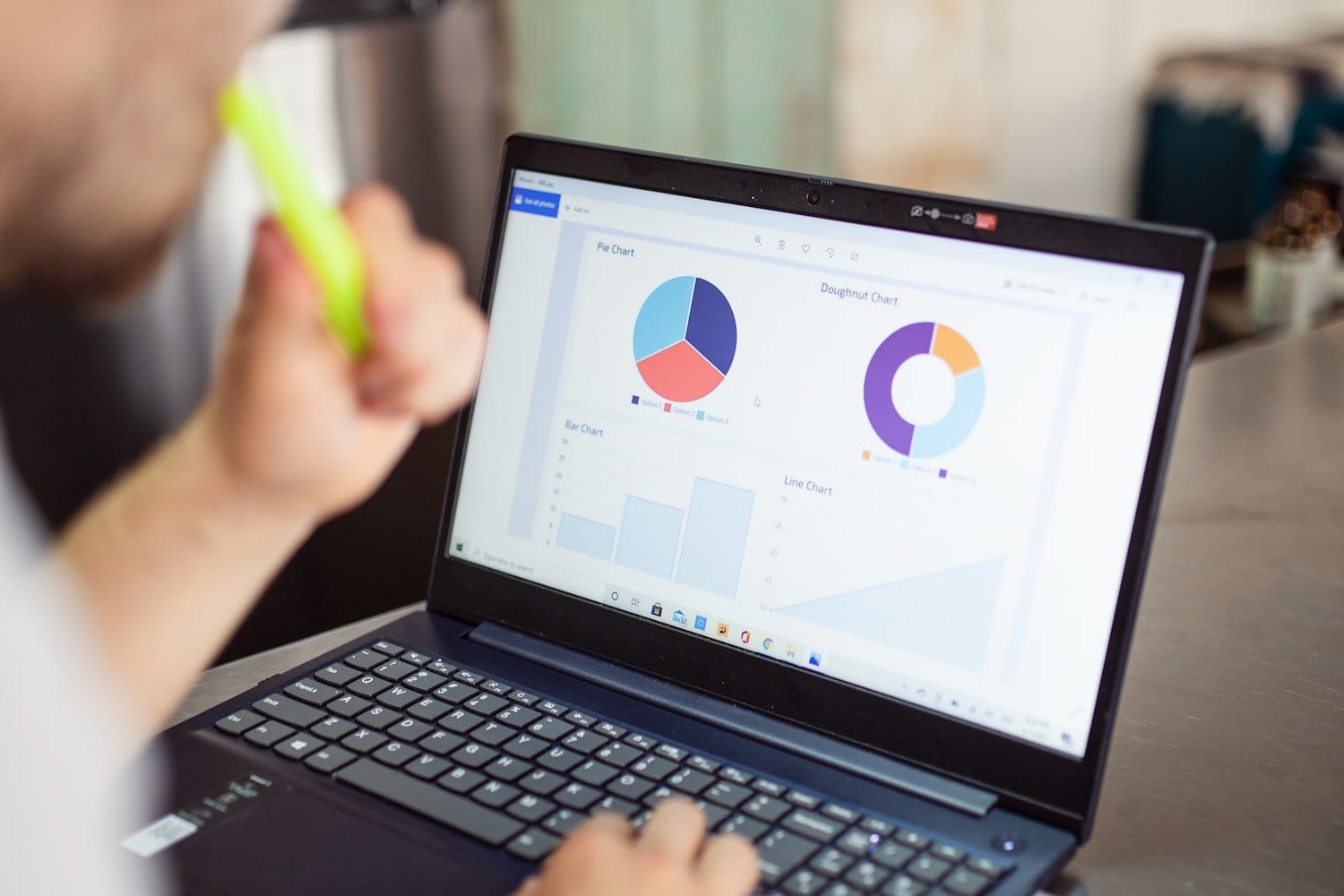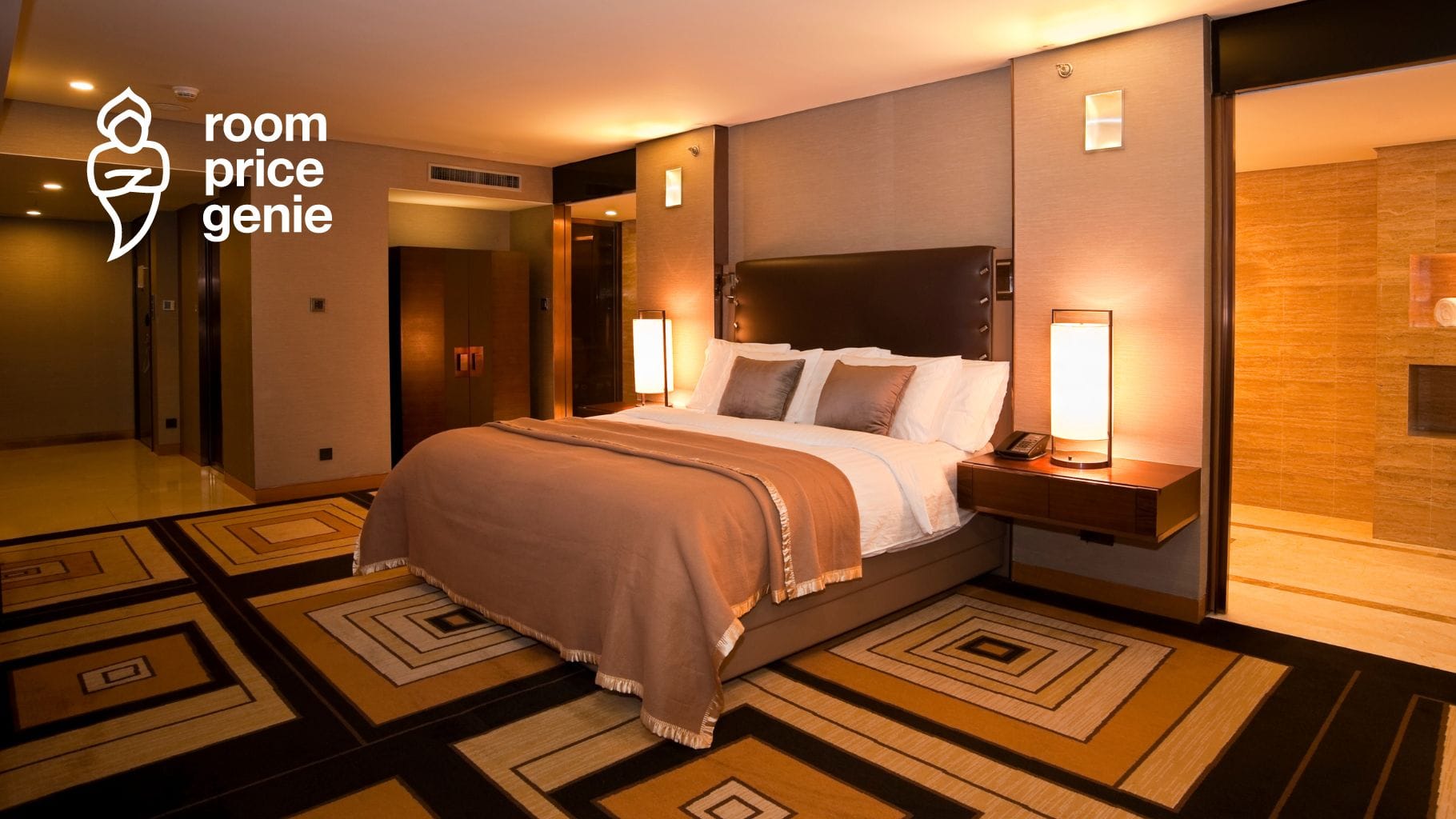After months of lost revenue and depressed earnings, hoteliers are doing everything they can to improve their profit margins. How does a property manager increase revenue better than the competition? The answer is a dynamic pricing strategy.
In this blog, we collaborated with the revenue experts at RoomPriceGenie to bring you hotel revenue management techniques with real-life examples from hotels to increase your occupancy rate and revenue.
But first, what do we mean by hotel revenue management?
Simply put, hotel revenue management is the strategic distribution and pricing tactics you use to sell your property’s rooms inventory to the right guests at the right time to boost revenue growth.
Hotel revenue management also applies analytics to predict guest behaviour and industry trends to offer exemplary service that will specifically cater to the guest’s needs. It’s all about price recommendations that you can understand and control.
Why should you have a revenue management strategy?
Hotel revenue management is the cornerstone of running a successful and profitable hotel. The most successful hoteliers continuously look for ways to learn and improve their operations, gaining an edge over the competition with the RaccoonRev that tracks fluctuations in supply and demand. Hotel revenue management involves assessing guests’ demographics – their socio-economic backgrounds, leisure activities and the maximum value they can offer your hotel. This assessment will tell you what your guests are willing to pay according to the supply and demand of your guest rooms.

Hotel revenue management isn’t only implemented during times of high demand. A perfectly executed revenue management system will keep the business afloat even during the quiet seasons and without you engaging in price wars with your competitors. If there’s an industry that understands the importance of hotel revenue management in times of crisis – it’s undoubtedly the hospitality industry with the recent Covid-19 pandemic.
What is dynamic pricing, and why is it important for hotels?
Dynamic pricing is a strategy that uses variable prices instead of fixed ones. The dynamic pricing strategy is important for hoteliers because it sells the same product at different prices to stimulate demand.
A key hotel revenue management element is creating optimal hotel room pricing strategies. Even if you have a dedicated property manager, prices set without the support of reliable data and thorough analysis won’t be effective at capturing the most significant possible demand. That is why our incredible connectivity partner, RoomPriceGenie, offers pricing tips and strategies guaranteed to increase revenue.

Back in the day, a hotelier or a B&B manager would set a fixed price for a room that would remain unchanged for days or weeks. To think there are still property managers operating with this model of yore is a travesty that RoomPriceGenie seeks to correct. Hotels are missing out on revenue and RoomPriceGenie wants to help them by using a tried and tested method – dynamic pricing for hotels.
8 Hotel Revenue Management Strategies

Of course, there’s a plethora of hotel revenue management approaches that have been tried and tested by hotels of varying sizes. These are some of the strategies we suggest as hoteliers often overlook them.
1. Create package deals on your website

Offer attractive packages where the room’s price can be included with an enticing deal of additional services like a spa treatment. Personalise your packages for your guests with a powerful Booking Engine – a room with a balcony and an exquisite view; late checkout for a minimal fee; upselling is a great way to generate more revenue and improve the guest experience by creating package deals and selling them from your website.
Hotel properties can also take advantage of the rise of ‘bleisure travel’ — the trend of combining business and leisure travel, by providing speciality services for that niche market. We’re talking about “adventure concierge” as an amenity for business conferences. Combine this with offsite itineraries to nearby attractions and activities and ensure your guests get the most out of extending their trip for a few days.
2. Go beyond seasonal prices with yield rules

The traditional low and high-season holiday bookings are things of the past, and travellers book more at random times. That’s why yield rules and rate recommendations are integral to your hotel management system, as they adjust room prices according to demand. All these automatic rate updates happen in the background, saving time and increasing revenue so you can sell more.
In this post-covid era, many hotels unknowingly undersell by charging low, thinking they will attract more guests. They don’t realise their hotel’s value and are hesitant to increase their prices. Hoteliers that have higher hotel room costs tend to make more revenue. The experts at RoomPriceGenie assert that having a little higher room rate than competitors leaves lower occupancy but makes more revenue.
3. Know when to increase your room rates

Contrary to popular belief, high TripAdvisor ratings or selling out far in advance are signs that you are pricing your rooms too low. If you’re also getting fully booked too soon, that’s an early indicator that you need to charge more for your hotel room rate. Of course, it’s terrific that you are fully booked. However, it’s not so wonderful that you are too cheap you’ve reached maximum occupancy even before most people have shopped around for a place to stay. Knowing when to increase your room rates is a hotel revenue management strategy that works for all properties – B&B’s, guest houses and luxury hotels.

4. Forecastings
Forecasting is an effective hotel revenue management strategy to set prices based on your expected demand. This expectation, as forecasted by RoomPriceGenie’s dynamic pricing software, relies on understanding your hotel’s occupancy data, revenue, room rate and average spend per room. It forecasts the upcoming months and the same period the previous year and looks at demand and events.
5. Increase bookings and revenue with day-of-the-week pricing

Day-of-the-week pricing is an easy way to maximise revenue. Different hotels have different demand patterns and should adapt their pricing to that. This means that you’re mindful of the supply and demand in your local market, ensuring that you stay within the market prices. Day-of-the-week pricing also means the packages you offer change as you respond to market trends.
Feel free to charge for premium and quality service instead of giving it away for free. Most hotel guests would love the option to check in early or even check in online and check out late. In fact, they’re willing to pay extra for this; these added services are a simple way to increase revenue. This is ideal as a hotel revenue management strategy as it saves both the hotelier and the guest a valuable commodity – time.
6. Hoteliers who don’t use automation fail to respond to demand changes on time
It is impossible to manually keep up with market demands, for instance, tracking conferences, concerts or other events that impact your demand. Many hotels miss out on important occasions like festivals and tradeshows to increase their rates. With the RoomRaccoon and RoomPriceGenie integration, your room rates adjust automatically across all sales platforms so that you never miss out on revenue.

7. Too many hotels have a small price difference between minimum and maximum packages
Increasing your maximum pricing allows you to fluctuate your room rates more and gives you greater flexibility to adjust rates during high demand. Undercutting competitors should be done more strategically – on particular days when you need more business but not as an overall strategy. Price wars are bad for everyone, don’t engage in them to get more bookings if they don’t bring long-term revenue to your hotel.
8. Length of stay restrictions is a great way to increase occupancy and revenue

Maximising bookings by length of stay is a great hotel revenue management strategy. This way, you prevent only selling out on peak days with no bookings on shoulder dates. Shoulder dates define a period before or after the block core dates where you can make reservations against the block during the reservation pickup process.
Still doubting the value of automation for your hotel?
RoomPriceGenie compared nine different European hotels with rooms ranging from 4 to 55 to evaluate their performance on the (RMS) Revenue Management System.
On average, there was a 22% increase in revenue across all nine hotels and a 4% increase in their Average Daily Rate (ADR)—a resounding return on the RoomPriceGenie investment.
How does RoomPriceGenie increase both ADR and occupancy? It pushes up the price as you approach full occupancy, leading to a higher ADR. Then, for the quiet seasons without bookings, it reduces the cost, meaning more guests.
Below is a representation of the value of using RoomPriceGenie for hotels of different sizes that appeal to different market segments.

Finding the best price to offer your guests is the easiest and most effective way for any business to increase profits.
How does RoomPriceGenie’s dynamic hotel pricing strategy work?
- Scan – RoomPriceGenie scans prices from other local hotels and Airbnb.
- Check – RoomPriceGenie checks the current Reservation performance of the hotel (so how many rooms are left to sell, what is the pickup, what room categories are left, etc).
- Optimise – An intelligent algorithm optimises the rates. We do this based on the base rate and then look at factors like market demand, competitors, Occupancy/Pickup Factors, and adjustments the hotelier sets (min or max prices or specific criteria they set).
Scott Dahl, an all-round revenue management pricing expert, explains price optimisation in this short clip. Watch here. - Updates – These rates are updated automatically in RoomRacoon.
To understand how to adjust price points effectively, RoomPriceGenie’s integration with RoomRaccoon’s all-in-one Hotel Management System runs new pricing-sensitivity research. Pricing sensitivity? This is the degree to which a price changes because of lack of demand.
In the hospitality industry, demand is never the same. That is why we use dynamic pricing software that automatically sets your prices and helps hotels and serviced apartments increase revenue by 15-20%.
As the system is all automated, more updates do not mean more work, as everything happens automatically. Still, as a hotelier, you can choose to be hands-off, letting the platform act as an always-on pricing manager, or jump in and control your prices manually.
You always have control and insight into how the costs are developed. We give hoteliers details on how we got to the price recommendation because we empower them and only make decisions with their input.

Dynamic pricing for hotels is a hotel revenue management strategy that continuously analyses demand and adjusts prices to keep them at an optimal level. This way, your hotel responds to market trends and needs at a given time. The flexibility of dynamic pricing allows your property to capture the right customer at the right time and in turn, maximises revenue.
In essence, a good pricing strategy is all about getting the most value from each room. Maximising your Average Daily Rate (ADR) and Revenue Per Available Room (RevPAR) will create a sustainable profit, and optimised pricing will protect you in a vigorously competitive industry. With RoomRaccoon’s dynamic pricing tool, Yield Manager, hotels with 3 or more yield rules can increase their RevPAR by 14%.
There are four key elements of hotel revenue management that hoteliers should adhere to.
They are known as the 4 P’s of the Revenue Cycle.
- Pricing: This is the most important of them all because it decides performance and determines the value of an asset or service.
- Positioning: Positioning accurately describes your target market segment and paints a concise picture of how you want your hotel brand to be perceived by your current and prospective guests.
- Pace: As a hotelier, you will ideally benchmark against your competition to evaluate your performance using the following criteria: product (luxury, mid-range, budget-friendly etc.)
- Performance: Your hotel’s booking pace will help determine which strategies to use to attract guests.
Factors to consider when implementing a pricing strategy for your hotel
Regarding pricing strategies for hotels, there’s no one-size-fits-all script. That is why RoomPriceGenie is built around your property’s needs and preferences, be it a 150-room metropolis hotel or a B&B in the countryside. Here are some of the most important factors to keep in mind.
- Know your market: who is your target audience? Ensure that your prices are tailored specifically for your guests staying at your hotel.
- Anticipate your guests’ needs and demands: review and analyse your historical data to identify patterns or trends with travellers. RoomPriceGenie uses data-driven pricing guides to help you spot demand patterns and maximise profit.
- Online reputation: this is the public perception of your hotel, its influence on prospective guests and how people feel at the mention of your hotel’s name.
- Natural disasters or unforeseen circumstances: While we may not want natural disasters, planning for them in your pricing strategy will lessen their impact and not hurt revenue.

Conclusion
Selling your rooms at a fixed price all year round is not ideal because you’re losing thousands of revenue. Automated dynamic pricing saves time and allows you to maximise your hotel’s earning potential as demand increases. Set yourself up for success and integrate RoomRaccoon’s hotel management system with RoomPriceGenie to save your team valuable time and maximise your hotel revenue.







